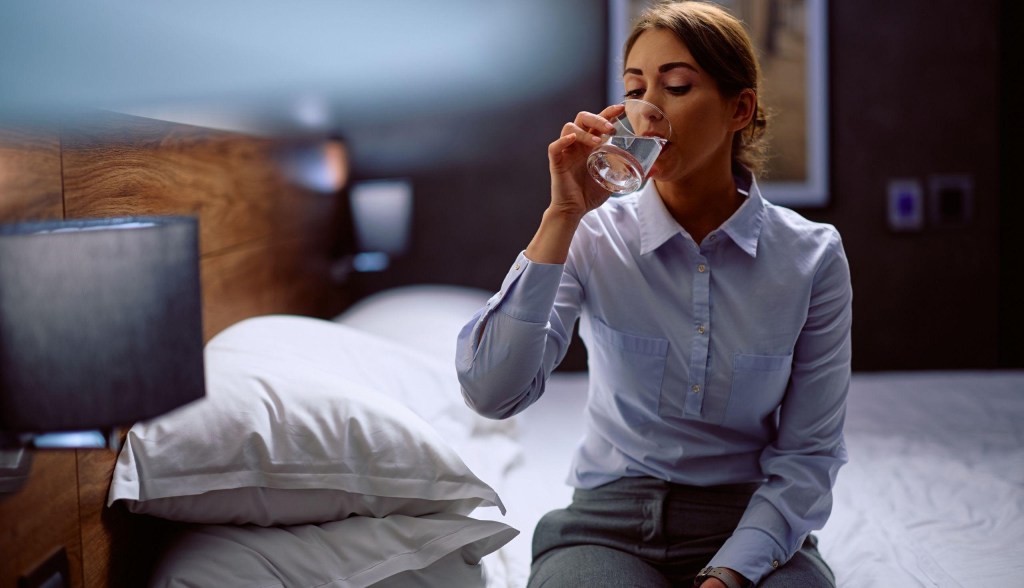
Is hotel water safe to drink?
Staying hydrated is essential, but it can be more difficult to drink a sufficient amount of water when you’re away from home and out of your daily routine. And, unfortunately, that’s likely when you need water the most. If you’ve ever traveled and asked yourself, “Is hotel water safe to drink?” — you’re not alone. Read on to learn everything you need to know about drinking water from a hotel and the safe drinking water alternatives you can rely on.
Where does hotel water come from?
Hotel guests may receive a complimentary water bottle when they check in — but that’s it. This likely isn’t enough to keep you hydrated for your entire trip, especially if your room has more than one guest. And, when you’re desperate for a glass of water, it’s easy and cost-effective to rely on the drinking water you have access to in your room, but is this water safe to drink?
First, it’s important to recognize that drinking water from a hotel means this water is coming from the bathroom tap. So, essentially, hotel water is tap water that’s gone through the local municipal water system. While tap water is considered potable, making it generally safe to drink, not all water sources are created equal. A survey from the National Science Foundation found that 71% of U.S. consumers drink tap water, but 55% aren’t sure what’s in their water and are concerned about contaminants.
If the majority of American consumers are unsure of their home’s water quality, it’s safe to assume we know even less about the water from a hotel bathroom tap. What’s more, several unique factors can impact whether your hotel’s tap water is safe to drink.
Everything you need to know about drinking tap water
What is the Safe Drinking Water Act?
The Safe Drinking Water Act (SDWA), passed in 1974, was created to protect the quality of drinking water in the United States. It gives the Environmental Protection Agency (EPA) the authorization to establish minimum standards to safeguard tap water sources and requires operators of public water systems to comply with set regulations. These standards extend to any water supply that’s intended for drinking, whether from an above-ground or underground water source.
How is tap water treated?
When it comes to a hotel’s bathroom tap water, guests can rest assured that this water has gone through the treatment and filtration process utilized by public drinking water systems. The typical series of water treatment steps include:
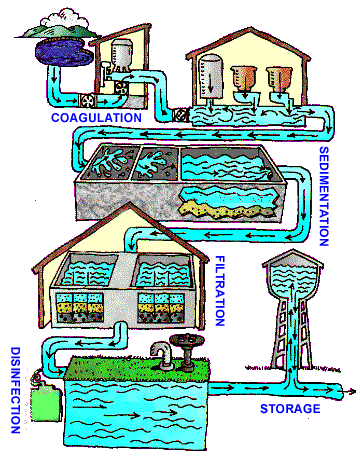
- Coagulation: Positively charged chemicals are added to the water supply to neutralize the negative charge of dirt and other dissolved particles.
- Flocculation: The water source is mixed to form larger, heavier particles called flocs.
- Sedimentation: Flocs settle to the bottom, separating solids from the water.
- Filtration: The clean water that was isolated by sedimentation and left on the top is filtered again to separate additional solids from the water.
- Disinfection: One or more chemical disinfectants, such as chlorine or chlorine dioxide, can be added to the filtered water to kill any remaining contaminants or bacteria.
Although a hotel’s water supply will go through treatment, it’s important to remember that water quality can differ greatly depending on location — even changing from one zip code to another. For that reason, water is treated differently everywhere you go.
The problem with hotel tap water
In addition to varying standards of filtration across the country, hotel guests should be wary of the “safe tap water” from hotels because of a possible build-up of germs and bacteria. Why is this? The water in unoccupied hotel rooms can remain stagnant in pipes for days to months, making hotel plumbing a breeding ground for bacteria and other harmful microorganisms. Moreover, older buildings used by hotels usually have lead piping in their bathrooms, which makes the water supply dangerous and unsafe to drink.
Environmental Health News reports that despite treatment and EPA regulations to provide clean drinking water across the country, there are still hundreds of contaminants detected in U.S. tap water. The most common contaminants you might run into while drinking hotel tap water in the United States include:
- Chlorine
- Lead
- Chromium
- Fluoride
- Arsenic
- Pharmaceutical drugs
- Radioactive contaminants
How does drinking unsafe water impact your health?
When hotel guests consume water that contains unsafe levels of contaminants, it can cause adverse health effects. The EPA reports that the severity of these effects is dependent on the type of contaminant, its concentration in the water, individual susceptibility, the amount of water consumed, and the duration of exposure. Possible health impacts include:
- Stomach pain
- Vomiting
- Diarrhea
- Headache
- Fever
- Kidney failure
- Hepatitis
Why plastic bottles aren’t a suitable alternative
Once you’ve determined that hotel tap water likely isn’t your best source of clean drinking water, it’s easy to turn to plastic water bottles to stay hydrated. However, this is not the most cost-effective, sustainable, or healthy alternative available.
The cost of bottled water can quickly add up, and it’s even more expensive if you plan on purchasing them directly from the hotel. But, more than the strain on your wallet, plastic water bottles are also detrimental to the environment. This includes high amounts of plastic waste, a considerable loss of water during plastic bottle production, and large use of oil throughout the manufacturing process. According to Grand View Research, consumers in the U.S., alone, purchase about 50 billion water bottles per year — which quickly adds up in terms of environmental damage.
Lastly, just as tap water has unique contaminants to be cautious of, so do plastic bottles. In this case, a plastic bottle contains chemicals that can leach into your drinking water. At certain levels of exposure, the chemicals found in plastic, particularly one known as Bisphenol A, have been implicated as carcinogens.
With the pitfalls of bottled water in mind, individuals and hotels need a drinking water supply that they can trust — and a bottleless water cooler can do the trick!
Bottleless water coolers — A hotel water supply you can trust
When you’re traveling and you need a glass of cold water, it’s always a good idea to be cautious of an unfamiliar water source. And, while the water from a hotel bathroom tap goes through filtration and treatment to mitigate contaminants, it’s safe to avoid this water supply if you can: The potential risks to your long-term health aren’t worth it.
So, how can hotels provide water that guests can trust?
Hotels can leverage bottleless water coolers from Culligan Quench to ensure access to clean, great-tasting water. We offer water-as-a-service solutions by providing filtered water through a broad array of bottleless machines — so hotels can keep their employees, customers, and guests happy, healthy, and hydrated at all times.
Inspired by innovation and environmental conscience, a bottleless water dispenser from Culligan Quench leverages cutting-edge filtration technology to deliver great-tasting, clean water safely and sustainably. So, when hotels and conference rooms need an endless supply of fresh, clean water — our bottleless dispensers can keep up.
Culligan Quench has experience providing filtered water to some of the finest names in hospitality—from the Omni hotels to the Four Seasons. If you’re ready to provide safe drinking water with a bottleless water cooler, get a free quote to get started.
Recommended products
Culligan Quench has an advanced suite of bottleless water cooler models that are designed to meet the needs of hotels of all shapes and sizes. Bottleless water coolers can be placed throughout your property for staff and guest filling.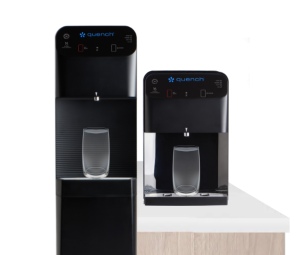
Q8 Touchless Bottleless Water Cooler
Available with quenchWATER+ electrolyte water
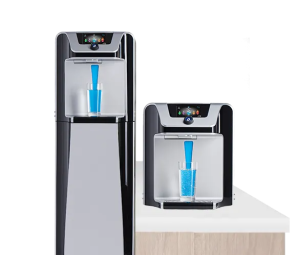
Q10 Bottleless Water Cooler With Sparkling Water
Includes Firewall® UV Protection
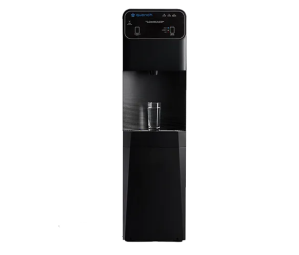
Q12 Touchless Bottleless Water Cooler
Available with quenchWATER+ electrolyte water